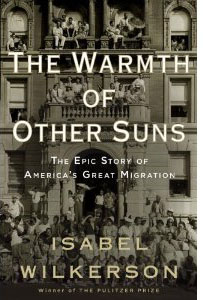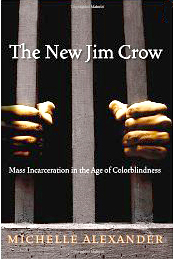
The Enigma of Capital
and the Crisis of
Capitalism
by David Harvey
222 pp, hardbound, $29.98
Publishers Weekly: "At times of crisis," notes eminent Marxist geographer Harvey, "the irrationality of capitalism becomes plain for all to see."
Prof. Andrew Gramble of Cambridge Univerity adds: "...this book is a welcome addition to the literature on the crisis. It provides a lucid and penetrating account of how the power of capital shapes our world, and sets out the case for a new radicalism and a vision of alternatives."
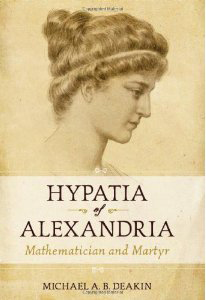
Hypatia of Alexandria
by Michael A.B. Deakin
304 pp, hardbound, $29.98
If you've seen the movie Agora, you know why you need this book! But if you haven't seen Agora, imagine a time (the late Roman empire) when the world's greatest living mathematician was a woman, a woman who was simultaneously the world's leading astronomer. Imagine her achieving fame not only as a mathematician, but as a philosopher and teacher.
Then image her being savagely put to death, not for being a Christian, but by a mob of Christians because she was not one of them. Finally image the guilt for her death ultimately lying with one of Christianity's most honored and significant saint: Cyril of Alexandria.
Michael Deakin's book Hypatia of Alexandria: Mathematician and Martyr covers it all, the story of her life, the historical and intellectual background, and Hypatia's technical achievements
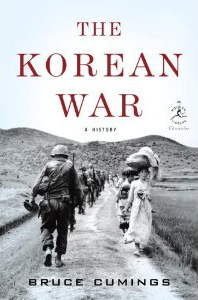
The Korean War
by Bruce Cummings
288 pp, hardbound, $24.00
In The Korean War, Bruce Cumings brings to light the long-hidden history of the Korean War. A shocked New York Times reviewer wrote, "Mr. Cumings argues that the Korean War was a civil war with long, tangled historical roots, one in which America had little business meddling. He notes how 'appallingly dirty' the war was. In terms of civilian slaughter, he declares, 'our ostensibly democratic ally was the worst offender, contrary to the American image of the North Koreans as fiendish terrorists.'"
"Mr. Cumings likens the indiscriminate American bombing of North Korea to genocide," the Times continues. "He writes that American soldiers took part in, or observed, civilian atrocities not dissimilar to those at My Lai." Cumings also situates the Korean War in the anti-communism of U.S. domestic politics of the time, and sees the Korean War period as launching the national security state.
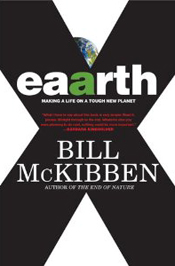
Eaarth
by Bill McKibben
272 pp, paperback, $24.00
“The world as we know it has ended forever: that's the melancholy message of this nonetheless cautiously optimistic assessment of the planet's future by McKibben, whose The End of Nature first warned of global warming's inevitable impact 20 years ago. Twelve books later, the committed environmentalist concedes that the earth has lost the climatic stability that marked all of human civilization. His litany of damage done by a carbon-fueled world economy is by now familiar: in some places rainfall is dramatically heavier, while Australia and the American Southwest face a permanent drought; polar ice is vanishing, glaciers everywhere are melting, typhoons and hurricanes are fiercer, and the oceans are more acidic; food yields are dropping as temperatures rise and mosquitoes in expanding tropical zones are delivering deadly disease to millions…” -- Publishers Weekly
“Read it, please. Straight through to the end. Whatever else you were planning to do next, nothing could be more important.” -- Barbara Kingsolver
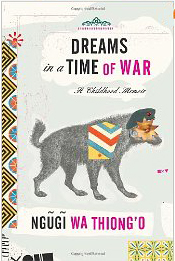
Dreams in a Time of War:
A Childhood Memoir
by Ngũgĩ Wa Thiong'o
272 pp, paperback, $24.95
The fifth child of his father's third wife—one of an extended family whose collective experiences range from rural farming and carpentry to WWII rifleman—Ngũgĩ skillfully recounts the challenges and calamities of growing up in British-occupied Kenya.
Revolution Books carries the widest collection of Ngũgĩ's novels and plays, plus works about Ngũgĩ.
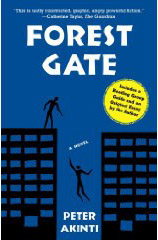
Forest Gate
by Peter Akinti
224 pp, paperback, $14.00
"..a feat of fiction writing that goes beyond reporting, because it's the sort of thing that reporters never, or hardly ever, tell you. Akinti tells you how appalling modern Britain can be. We keep hearing about knife crime and gang warfare, but really have no idea. Well, Akinti does." - Guardian, UK
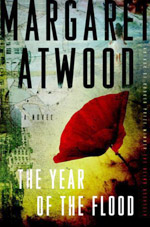
The Year of the Flood
by Margaret Atwood
448 pp, hardcover, $26.95
Like Oryx and Crake, Year of the Flood begins just after the catastrophe and then tracks back in time over the corrupt and degenerate world that preceded it. But while the first novel focused on the privileged elite in the compounds and the morally bankrupt corporations, The Year of the Flood depicts more of the world of the pleebs, an edgy no-man's land inhabited by criminals, sex workers, dropouts and the few individuals who are trying to resist the grip of the corporations.

Marx's General:
The Revolutionary Life of Friedrich Engels
by Tristram Hunt
448 pp, hardcover, $35
“It all began over drinks,” Hunt writes of the forty-year collaboration between Karl Marx and his benefactor, ghostwriter, and best friend, Friedrich Engels. Engels’s life was defined by an awkward tension. When he could afford it, he was a muckraking journalist, street-fighting revolutionary, and international libertine. When he couldn’t, he was tethered to Manchester and his father’s cotton mill, supplying Marx with the money (and the empirical evidence) he needed to complete “Das Kapital.”
--from The New Yorker







